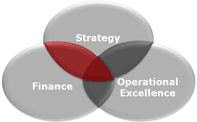 European share prices ended lower after Moody's announcement, ending a two-week rally, while Wall Street was little changed after early gains on upbeat U.S. economic data.
European share prices ended lower after Moody's announcement, ending a two-week rally, while Wall Street was little changed after early gains on upbeat U.S. economic data.Precious metals prices came under pressure as the U.S. dollar rose. Oil gained following an unexpectedly large drop in U.S. inventories. U.S. Treasuries saw their early flight-to-safety buying momentum wane, but the 10-year benchmark note held modest gains while the 30-year bond lost more than half a point.
Spanish government bonds reversed early losses. The 10-year government bond yields shot up to a high of 6.43 percent before falling past Tuesday's closing level to 5.48 percent, down 7 basis points for the day.
"It's literally a question of people thinking maybe Spain is too cheap," said Huw Worthington, a European fixed income strategist at Barclays Capital in London. "People have maybe cheapened it too much ahead of the auction."
Spain will hold a 10- and 15-year bond auction on Thursday.
The euro fell to a record low against the Swiss franc of 1.2758 francs on the EBS trading platform before recouping to 1.2787, off 0.4 percent.
Against the dollar the euro fell 0.91 percent at $1.3262. The greenback rose 0.49 percent to 84.04 against the yen. Against major currencies the U.S. dollar was up 0.79 percent .DXY.
Moody's cited concerns about Spain's mounting debt and 2011 funding needs. The decision included the caveat that while the Aa1 rating could be cut, it does not expect Madrid to have to follow Greece and Ireland in requiring a European Union bailout.BCE, Citigroup, Agerpres, Mediafax, PIB, Rusia, SUA, Spania,Banca Mondiala,FMI, Guvern,agenda de business, bugetul de stat, economie, revista presei,romania,antena3.ro,realitatea.net,mediafax,bucuresti,camera de comert


